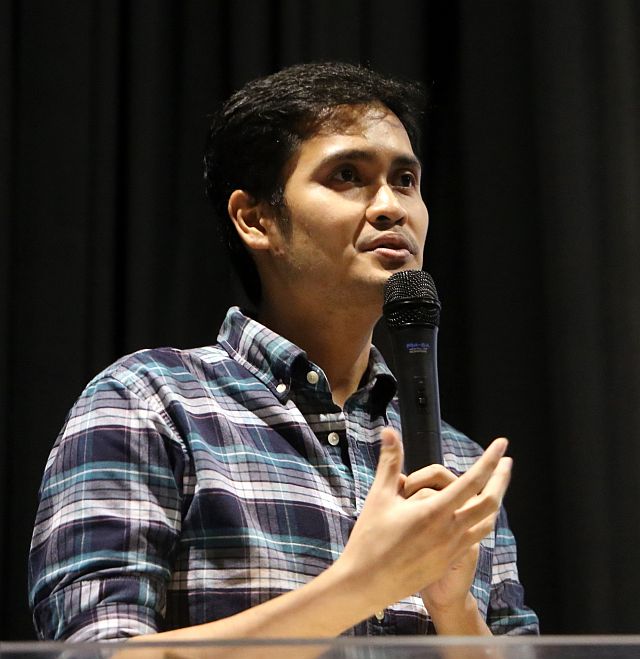RAFI partners with stakeholders to restore Gabaldon schoolhouses in Cebu

Archt Neil Andrew Menjares speaks during the forum on Gabaldon Restoration and Preservation of Open Spaces in Public School (CDN PHOTO/LITO TECSON).
IN its effort to strengthen the formal public education system as well as preserve the local culture and heritage in Cebu, a non-government organization (NGO) is partnering with various stakeholders to restore the Gabaldon schoolhouses in the different parts of the province.
The Ramon Aboitiz Foundation Inc. (Rafi) will collaborate with the Cebu Provincial government, University of San Carlos Conservation and Heritage Institute Workshop, United Architects of the Philippines, and some local government units in implementing the Gabaldon Restoration Project (GRP), which is also one of Rafi’s core projects as it celebrates its 50th founding anniversary.
A Gabaldon schoolhouse is a school building predominantly made out of local hardwood called Yakal for structural members and tudas or molave for its other components. Named after Isauro Gabaldon, the assemblyman who authored the Philippine Commission act No. 1801 which pushed for the appropriation of P1 million for the construction of schoolhouses in barrios, Gabaldon schoolhouses were originated during the post-American war era in the 1900’s.
At least 3,000 Gabaldon schoolhouses were constructed all over the country during that era but only a thousand of them have made it to this day. As these structures are made out of wood, most of them have already deteriorated through time.
The collaboration aims to restore 30 schoolhouses in Cebu.
Two of these schoolhouses in Elpidio I. De Dios Elementary School and Luyang Elementary School in Carmen have already been completed, while six others in Bantayan Central School, Catmon Integrated School, Inghoy Elementary School and Lepanto Elementary School in Alegria, Madridejos Central School, and Pinamungahan Central School are already in the works.
“The restoration process of every Gabaldon schoolhouse requires much effort. This begins with a conservation management plan which requires a thorough dialogue with the local officials concerned. This phase is essential since we need to put in the right details regarding the materials to be used for the building. We don’t only restore and preserve the functionality of the building but the memories ingrained in it as well,” said Rafi’s project engineer for education development unit Ricky Morillo.
Morillo said that the restoration of every Gabaldon schoolhouse usually costs around P3 million depending on the material to be used and the size and location of the schoolhouse.
Forty percent of the project cost will be shouldered by Rafi, while the remaining 40 percent and 20 percent will be shouldered by the Cebu Provincial government and the concerned local government unit. Construction of every building takes about 45 days.
Morillo added that all their restoration efforts are also properly documented and compiled so there becomes a point of reference for further preservation efforts in the future.
During Rafi’s “Gabaldon Restoration and Preservation of Open Spaces in Public School” forum at the USC Talamban Campus yesterday, Archt. Neil Andrew Menjares of the USC School of Architecture said that among the areas of the conservation of Gabaldon schoolhouses is the restoration of the concrete pedestals which through time have been chipped away, making the foundation of the building imbalanced, replacement of the hardwood walls and floors damaged by termite infestation, and reinstallation of Capiz shells of the swivel windows to retain their functionality and aesthetics.
Disclaimer: The comments uploaded on this site do not necessarily represent or reflect the views of management and owner of Cebudailynews. We reserve the right to exclude comments that we deem to be inconsistent with our editorial standards.




